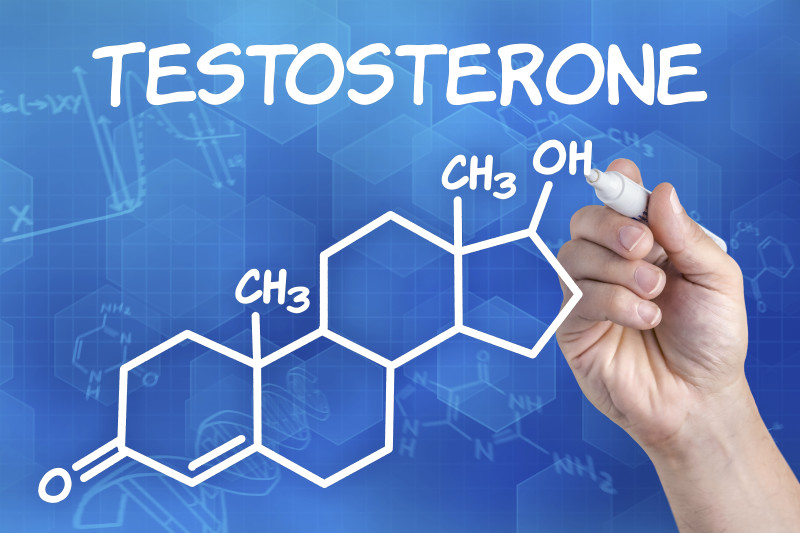Part 1
Can you imagine the excitement from the marketing department when the drug company chemists walked in and said: “all right everyone, we have a new product, an easy-to-use roll-on gel that will increase a man’s energy, improve muscle tone, help him lose weight, and reawaken his sexual interest.” I’ve never taken a marketing class in my life, and I could sell that product.
And sell it the drug companies did. Billions of dollars of it. I’m sure most of you recall the commercials about testosterone replacement therapy (TRT) from a few years ago. If not you can still find them on YouTube. The commercials and the advertising campaigns targeted men from early middle age through old age, and made some statement similar to this:
Do you have less energy that you did a few years ago? Are you gaining weight? Have you lost interest in sex? These conditions may not be the normal signs of aging, but rather a medical condition that can be treated. You may have Low-T, which is lower than normal testosterone levels. [ . . . Now wait for it . . . ] Ask your doctor if testosterone replacement therapy is right for you.
Drug therapies sound terrific at first. Let’s say you have a constellation of symptoms: mental, physical, or emotional. A drug arrives which cannot cure the underlying cause, but can eliminate or reduce the symptoms that have plagued you. Depression, for example, can be treated with “selective serotonin reuptake inhibitors” (SSRIs) such as Prozac and Zoloft. Risperdal, as we’ve discussed on this website, is a strong antipsychotic drug that can reduce the symptoms of schizophrenia and other serious mental disorders. Hormone replacement therapy for women was the rage several years ago.
And the single reason you are exposed to dozens of drug commercials on television every day is that there are billions of dollars at stake for a winning pharmaceutical. The drug companies of course learned this decades before the rest of us.
Enter testosterone.
Testosterone
Testosterone is a naturally occurring hormone vital to the development of masculine characteristics and male growth. It is mainly produced in the testicles, although women actually produce testosterone as well, though in much smaller volume. Testosterone production increases during male puberty, and the hormone works to deepen the male voice and increase muscle mass; it also functions to increase facial and body hair, and to spark the sex drive. It’s the thing that helps the boy become the man (at least physically).
Testosterone can also be produced in laboratories. FDA-approved testosterone products include a gel applied to the skin, an injection, a patch (also applied to the skin), and another method of delivering testosterone through application to the upper gum or inner cheek. The FDA has approved these products for men who “who lack or have low testosterone levels in conjunction with an associated medical condition.” Examples of an “associated medical condition” include failure of the testicles to produce testosterone because of reasons such as genetic problems or chemotherapy.
Hypogonadism
Hypogonadism is a medical condition which occurs when a man’s body is unable to produce enough testosterone because of an underlying problem with the testicles and/or parts of the brain that regulate the testicles, such as the hypothalamus and pituitary gland. Generally, testosterone levels between 250 nanograms per deciliter of blood to 1,100 ng/dL are considered to be in the normal range. When testosterone levels fall below this range, the levels are considered to be low. But that still doesn’t automatically mean the man needs to begin TRT.
Physicians Skeptical of Testosterone Replacement Therapy
Many physicians have been skeptical of the need for testosterone replacement therapy in most men. Many doctors advise that the first thing a man should do when he believes he may suffer from low testosterone is to lose weight, exercise, get more sleep, and get retested after making these lifestyle changes. In many cases, these positive changes will increase testosterone levels naturally.
Testosterone levels in men typically fall by only one or two percent per year after age forty. This is not a precipitous drop. Most experts believe that there is not an epidemic of Low-T among men.
Nevertheless, Solvay Pharmaceuticals launched a huge marketing campaign beginning in 2008 to sell its testosterone product, “AndroGel.” In the first year AndroGel was released for sale, 1.4 million prescriptions were written for men in the United States alone. Of course, other drug companies came running to get into the TRT profit stream. In 2013 two drug companies alone spent $119 million on television commercials promoting testosterone replacement therapy. In that year drug companies sold $2.2 billion dollars’ worth of testosterone.
Since that time sales of testosterone have fallen sharply, mostly because of studies linking testosterone therapy to an increased risk of heart attacks and strokes and other injuries. In the next post we will look at some of the alarming side effects that can be caused by the use of testosterone products, and the inevitable litigation that followed.
 North Carolina Product Liability Lawyer Blog
North Carolina Product Liability Lawyer Blog


